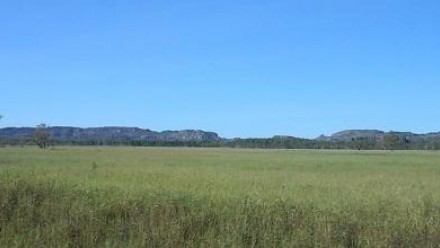Webinar: Aboriginal savanna burning in Arnhem Land: Regulation, uncertainty, postcolonial possibility
This event is being organised and run by the ANU School of Regulation and Global Governance (RegNet).
After a summer when much of south-east Australia burned dramatically there seems to be some growing awareness that carbon emissions mitigation alongside zero carbon energy generation and industry are essential. At least that is what Emeritus Professor Jon Altman thought when attending the National Climate Emergency Summit earlier this year, before everything got waylaid by the COVID-19 pandemic.
For the past thirteen fire seasons, Indigenous rangers that Professor Altman engages with, have engaged in a carbon emissions reduction program. Initially a pilot in West Arnhem Land, carbon reduction through prescribed burning has spread to almost all of Arnhem Land making it an exemplary region of 100,000 square kilometres that operates as a negative emissions region. In this webinar, focusing on the operations of Arnhem Land Fire Abatement (NT) Limited established in 2014, Professor Altman will examine how people who in the 1980s he described as ‘hunter-gatherers today’ have also become carbon farmers in the 21st century. Professor Altman will then outline some of the institutional, environmental, cultural and economic challenges and barriers, the regulatory uncertainty, that make this exemplary carbon farming project unnecessarily precarious. Professor Altman will end by making some broader observations about postcolonial possibility: how Indigenous savanna burning projects that deploy a mix of Indigenous knowledge and western science might help address Australia’s carbon emissions problem while simultaneously helping Indigenous landowners care for their country.
About the speaker
Jon Altman is Emeritus Professor of the Australian National University, currently located at the School of Regulation and Global Governance (RegNet). He has an enduring research interest in alternate forms of economic development in remote Indigenous Australia and has undertaken field research in western Arnhem Land since 1979.
Image: Arnhem land image by C Steele via flikr, creative commons licence.








